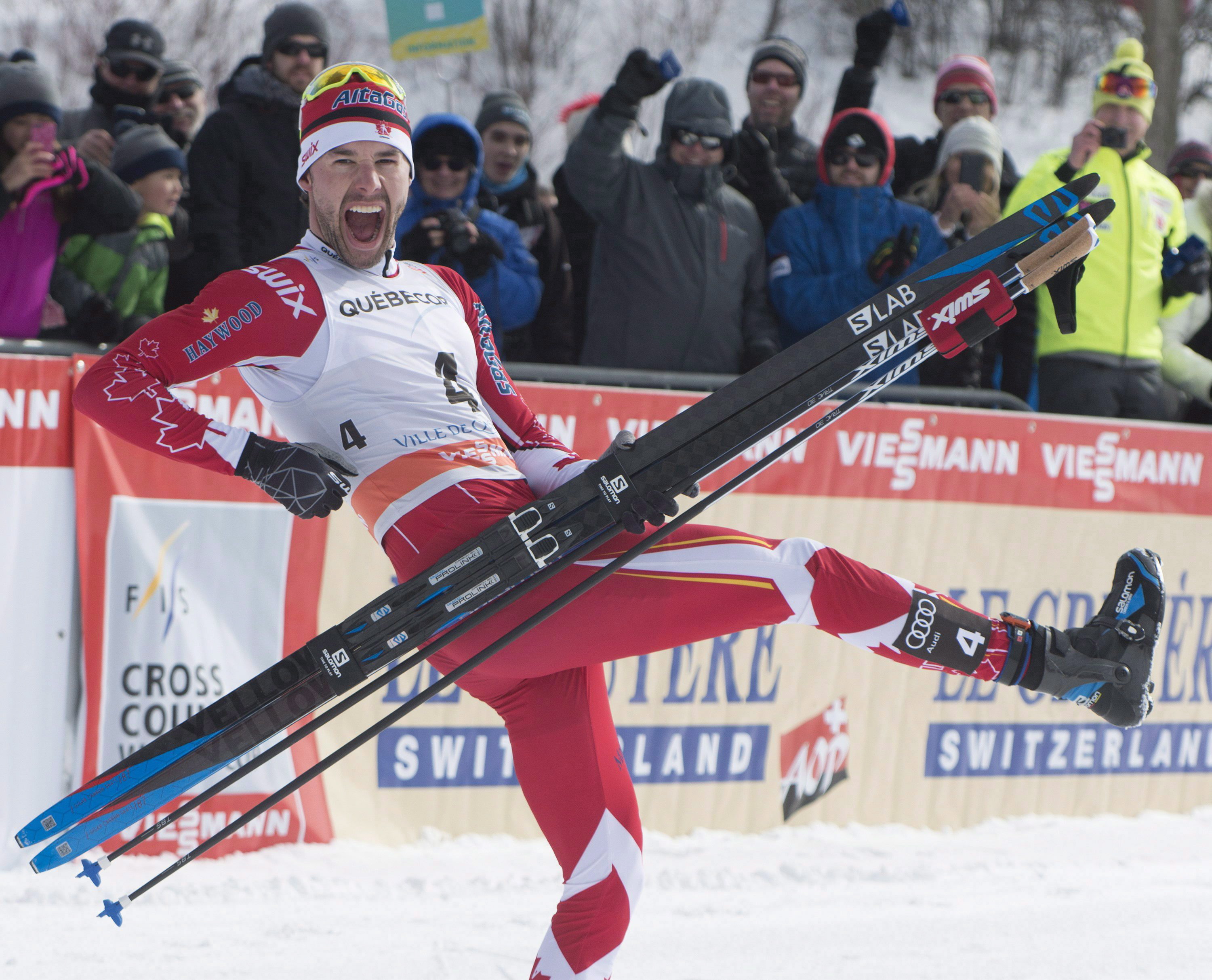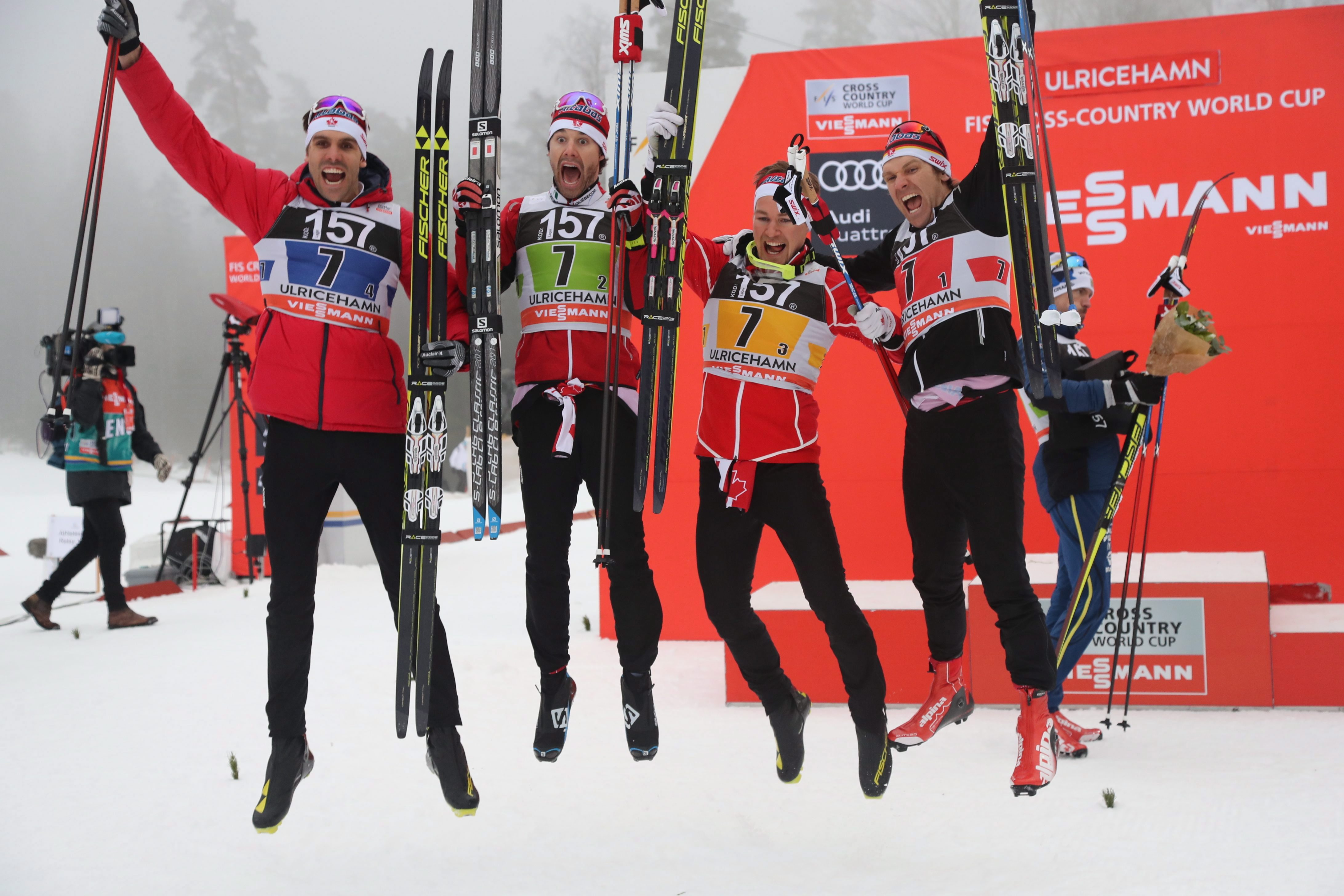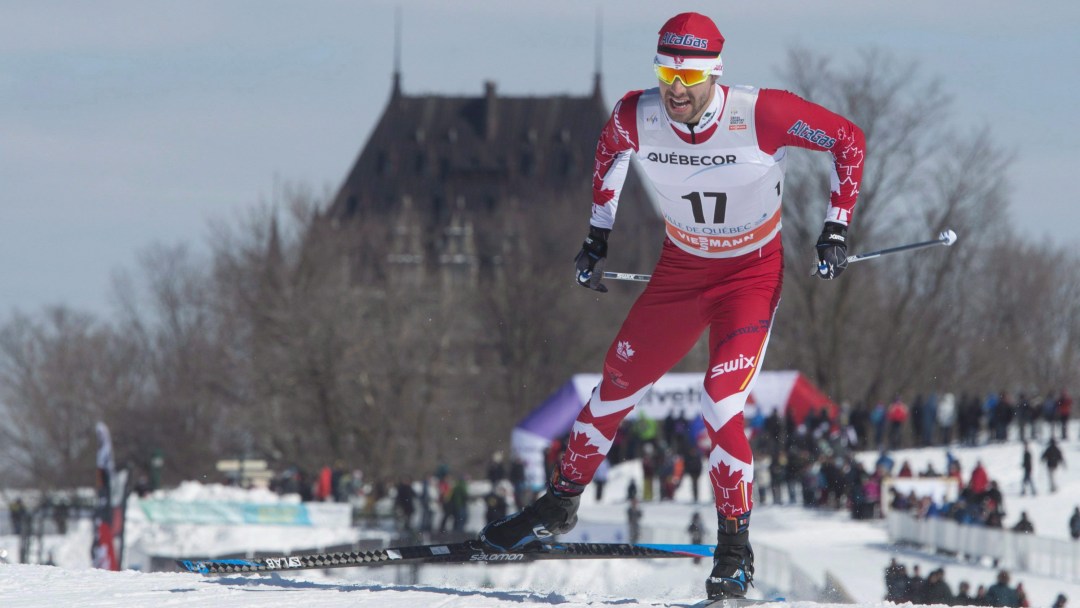2017-18 Team Canada Winter Preview: Cross-Country Skiing
All summer they chased the snow to the southern hemisphere and roller skied on roads in the Rockies.
Now Canada’s elite cross-country skiers are headed to Europe for the World Cup season as they try to maximize the number of Olympic entries for PyeongChang 2018.
Who is competing?
Cross Country Canada named the following athletes to its national team for 2017-18:
Men: Alex Harvey, Devon Kershaw, Graeme Killick, Knute Johnsgaard, Jesse Cockney, Len Valjas
Women: Dahria Beatty, Emily Nishikawa, Olivia Bouffard-Nesbitt
When and where are they competing?
There are 10 pre-Olympic stops of the FIS World Cup circuit, with four more after the Games, including the World Cup Finals in Falun, Sweden in mid-March.
November 24-26, 2017 – Ruka, Finland
December 2-3, 2017 – Lillehammer, Norway
December 9-10, 2017 – Davos, Switzerland
December 16-17, 2017 – Toblach, Italy
Tour de Ski:
December 30, 2017-January 1, 2018 – Lenzerheide, Switzerland
January 3-4, 2018 – Oberstdorf, Germany
January 6-7, 2018 – Val di Fiemme, Italy
January 13-14, 2018 – Dresden, Germany
January 20-21, 2018 – Planica, Slovenia
January 27-28, 2018 – Seefeld, Austria
How do they qualify for PyeongChang 2018?
There will be a total of 310 cross-country skiers at PyeongChang 2018. There is a maximum of 20 per country and, within that, a maximum of 12 per gender and four per individual event.
The number of spots that each country receives will be based on the Olympic FIS Points List, which is calculated using the average of five competition results for each athlete in distance and sprint events during the qualification period. That window opened on July 1, 2016 and will close on January 21, 2018.
Once each country with an eligible athlete (i.e. having a certain number of FIS points) has been given a spot and additional spots are given to those countries with athletes ranked in the top 30, the remaining spots will be awarded via the Olympic Quota Allocation List, which includes all men and women ranked in the top 500 of the Olympic FIS Points List. Starting from the top, the spots will be assigned until the above maximums are reached.
What should we watch for?
Canada���s most successful cross-country skier outside of the Olympic Games has set his sights on becoming the first Canadian man to win an Olympic medal in his sport – and he’s coming off the greatest season of his career. Alex Harvey finished third in the overall World Cup standings and was second in the distance rankings. He claimed his first individual world championship title, winning gold in the 50km mass start, however that race was held in free technique rather than the classic technique it will be in PyeongChang.

Team Canada’s Alex Harvey reacts after winning the 1.5 km freestyle sprint race at the FIS World Cup cross country finals in Quebec City. THE CANADIAN PRESS/Jacques Boissinot
Harvey posted five podium finishes in 2016-17, including three victories. One of those wins was a team sprint with Lenny Valjas, which was contested in free technique as it will be at the Games. Both skiers were also part of a breakthrough bronze alongside Devon Kershaw and Knute Johnsgaard, winning the first ever World Cup relay medal by a Canadian men’s team.

Team Canada’s Lenny Valjas, Alex Harvey, Knute Johnsgaard and Devon Kershaw celebrate their third place in the men’s 4×7.5km relay at the FIS Cross Country skiing World Cup in Ulricehamn, Sweden, Sunday Jan. 22, 2017. (Adam Ihse / TT via AP)
Kershaw was the leadoff man on that squad. He’s looking to compete at his fourth Olympic Games and would become Canada’s first male cross-country skier to hit that milestone. At the opposite end of the spectrum is Johnsgaard, who only had about a dozen World Cup starts outside of Canada before being a late addition to that relay team.
Dahria Beatty was Canada’s top-ranked woman on last season’s World Cup circuit. Hailing from Whitehorse, she’s part of the great northern influence on the cross-country skiing team. Emily Nishikawa and Johnsgaard are also from Yukon while Jesse Cockney was born in Yellowknife, Northwest Territories.


